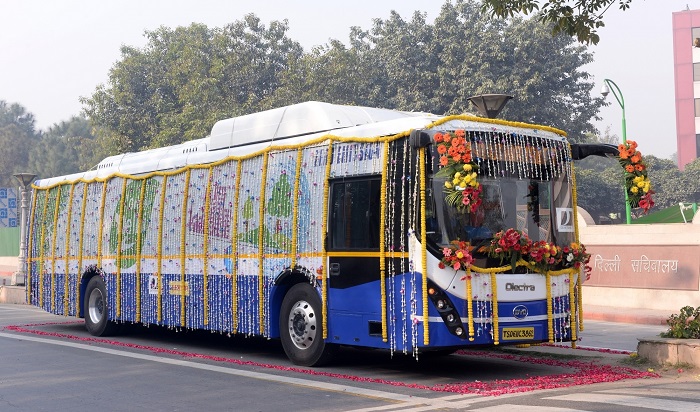New Delhi, In a major move to fight air pollution, the Delhi cabinet on Saturday approved 1,000 Low Floor AC Electric Buses for the national capital, claiming to be the first Indian city to have such a large number of e-buses.
Calling it a “historic day for Delhi”, Transport Minister Kailash Gahlot said the decision will help in ensuring a cleaner and greener future for the people of Delhi.
“The Delhi cabinet clears proposal of 1,000 Low Floor Electric Buses – greater than the commitment of all Indian cities put together,” he tweeted.
The cabinet took the decision at a meeting chaired by Chief Minister Arvind Kejriwal.
“Congratulations Delhi. Cabinet approves 1,000 electric buses. Several obstacles were created. All obstacles cleared. Delhi will become the first Indian city to have such a large no of electric buses,” Kejriwal tweeted.
The number of passengers carried daily by Delhi Transport Corp (DTC) and cluster buses is some 43 lakh, according to official data. This is more than the 25 lakh ferried every day by Delhi Metro.
Until now, all DTC and cluster buses plied on compressed natural gas (CNG).
Tenders for electric buses are to be released within a week, the Transport Department said in a statement. “The first lot of electric buses are expected to hit the streets before the end of 2019.”
“Creating sufficient capacity in public transport system is the only way to reduce air pollution in Delhi and bring down the number of vehicles on the roads of Delhi to reduce congestion,” the statement added.
The cabinet also gave its approval to allow the Transport Department to ask the prospective bidders to bring the buses with CCTV, Automatic Vehicle Tracking System (AVTS), Panic buttons and Panic alarms as per the specification finalized by the government, it said.
The Department said the 1,000 buses will be parked and charged overnight at six depots called as Parent Depots.
“However, infrastructure for charging of electric buses within the depot and the housing of requisite numbers of charging units shall be the responsibility of the Concessionaire.
“The arrangements to provide power infrastructure at intermediate charging points along bus routes (called host depots) will also be the responsibility of the Concessionaires,” it said.
A subsidy of up to Rs 75 lakh per bus or 60 per cent of cost of bus, whichever is lesser, shall be provided in three instalments along with the safeguards as prescribed by the Delhi government.
“The cabinet has decided that subsidy and power infrastructure up to Parent Depots, estimated to be Rs 800 crore, will be funded through the utilization of the ECC (Environment Compensation Charge) funds, presently a corpus of approximately Rs 1,100 crore, subject to directions and/or orders of the Supreme Court on this issue,” the Transport Department said.










